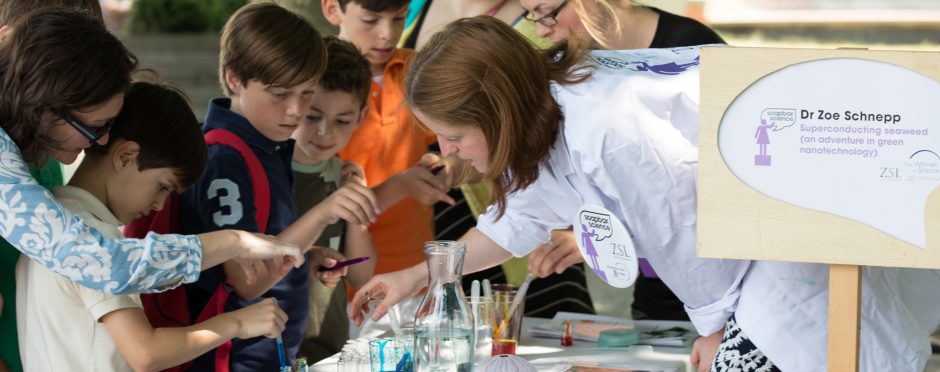 Katie Togher is currently a fourth year PhD student at University College Cork working with the Irish Centre for Fetal and Neonatal Translational Research (INFANT, www.infantcentre.ie/) and APC Microbiome Institute (APC, www.apc.ucc.ie). Her current research is investigating the mechanisms by which prenatal maternal stress may programme disease risk in affected children. In particular she is looking at how distress may impact the maternal, and subsequently, infant microbiome. Her research also focuses on how pregnancy stress may be impacting important genes involved in glucocorticoid signalling in the placenta.
Katie Togher is currently a fourth year PhD student at University College Cork working with the Irish Centre for Fetal and Neonatal Translational Research (INFANT, www.infantcentre.ie/) and APC Microbiome Institute (APC, www.apc.ucc.ie). Her current research is investigating the mechanisms by which prenatal maternal stress may programme disease risk in affected children. In particular she is looking at how distress may impact the maternal, and subsequently, infant microbiome. Her research also focuses on how pregnancy stress may be impacting important genes involved in glucocorticoid signalling in the placenta.
Come and meet more amazing women scientists at Soapbox Science Galway on Saturday 15th July 2017.
SS: Katie, how did you get to your current position?
KT: I realised I wanted to work in the area of developmental biology during the final year of my undergraduate degree in Neuroscience. I had a great research experience working on my final year project and approached one of the lecturers to do a research masters. From this, I secured a position at the INFANT centre which opened a lot of doors for me. During this time I was informed about a really interesting collaborative project with the APC microbiome Institute combining perinatal mental health with the microbiome. I jumped on board and quickly transitioned into a PhD with the two SFI centres.
SS: What, or who, inspired you to get a career in science?
KT: I have always been fascinated by the sciences and how things work. I studied biology, chemistry and physics for my leaving certificate and when I began my degree in biological and chemical sciences in University College Cork, I was sure I would go down the chemistry or physics route, but then fell in love with biology and research before specializing in Neuroscience. I am now lucky enough to work among some incredibly talented midwives, clinicians and scientists who keep me inspired every day.
SS: What is the most fascinating aspect of your research/work?
KT: As a clinical researcher, I have the opportunity to meet many beautiful and strong women at one of the most exciting times in their lives. Watching women progress throughout their pregnancy, from a point where their baby is no bigger than the size of a grape to getting to meet a tiny human after birth is definitely what fascinates me the most. The fact that the female body is capable of growing humans from the initial joining of two cells is a medical and scientific miracle (for me at least). The process of how this is happening is fascinating to me and keeps me constantly engaged.
SS: What attracted you to Soapbox Science in the first place?
KT: I originally heard about soapbox science through the outreach programme at the INFANT centre and after reading more about the great work and commitment soapbox science has being providing to promote female scientists I thought, yes, this is definitely something I want to get involved in.
SS: Sum up in one word your expectations for the event.
KT: Powerful
SS: If you could change one thing about the scientific culture right now, what would it be?
KT: I think funding and job structure might be one of the biggest problems right now. Unfortunately there is very little job security for scientists which drives many people away from the career. It’s definitely a part of the vocation that needs to be improved..
SS: What would be your top recommendation to a woman studying for a PhD and considering pursuing a career in science?
KT: I haven’t quiet finished my PhD yet, but if I were to give advice to someone trying to decide on if they should enter into a career in research or not, I would say go for it. Be confidant, aware of your own abilities and don’t underestimate yourself! Also (and very importantly) take your time to find a topic that interests and inspires you. Science is hard work, but if you’re doing something you truly enjoy and are passionate about it makes everything a bit easier.
